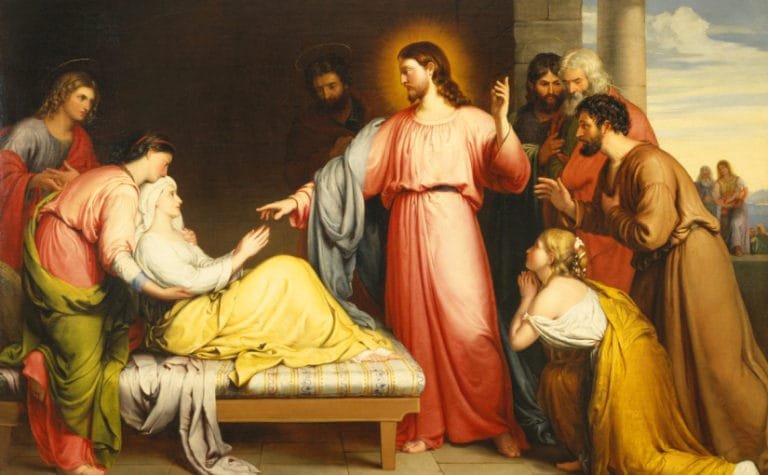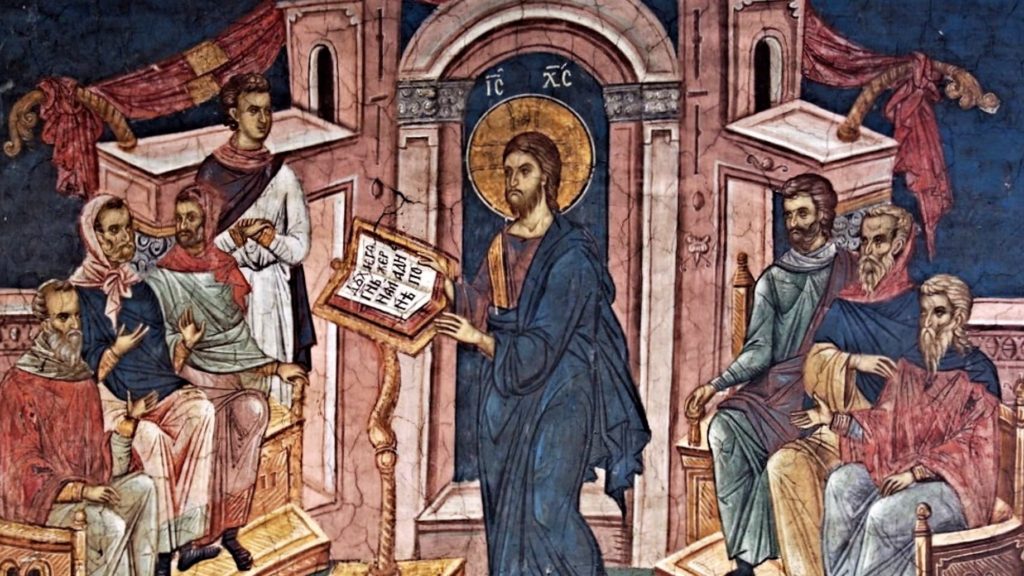SATURDAY 1ST WEEK IN ORDINARY TIME GOSPEL, COMMENTARY AND READING. “I HAVE COME TO CALL THE SINNERS” (Mk 2:13–17).
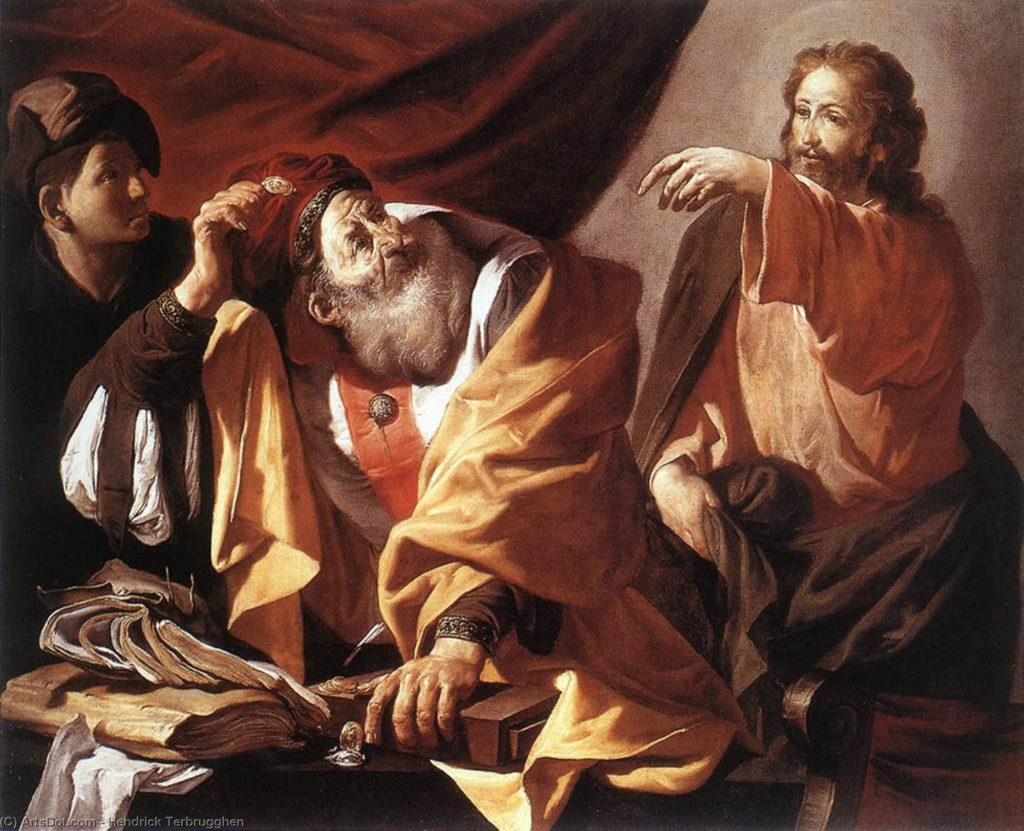
GOSPEL OF SATURDAY OF THE 1ST WEEK IN ORDINARY TIME
Mk 2:13–17
The calling of Matthew
Jesus went out along the sea. All the crowd came to him and he taught them. As he passed by, he saw Levi, son of Alphaeus, sitting at the customs post. Jesus said to him, “Follow me.” And he got up and followed Jesus. While he was at table in his house, many tax collectors and sinners sat with Jesus and his disciples; for there were many who followed him. Some scribes who were Pharisees saw that Jesus was eating with sinners and tax collectors and said to his disciples, “Why does he eat with tax collectors and sinners?” Jesus heard this and said to them, “Those who are well do not need a physician, but the sick do. I did not come to call the righteous but sinners.”
GOSPEL COMMENTARY
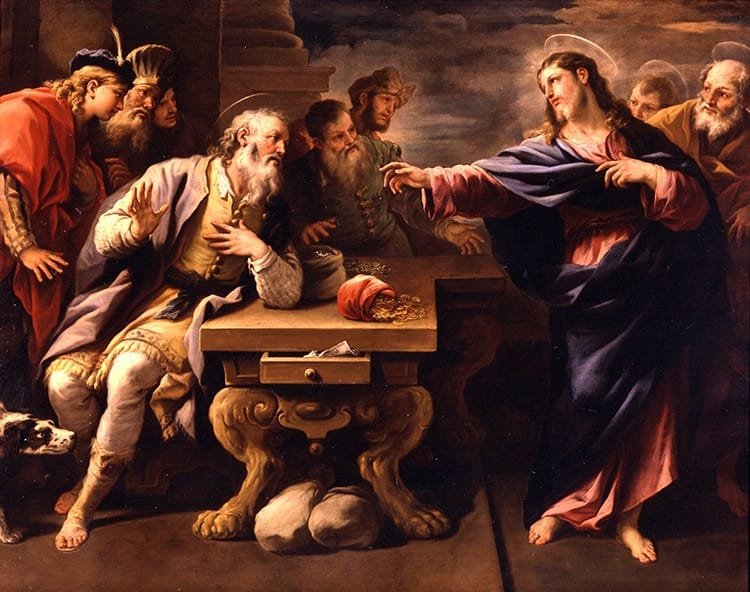
The Gospel of today’s Mass narrates the vocation of Levi or Matthew. The fathers identify Matthew with Levi. Besides it was quite common for Jews to have two names: Jacob-Israel, Simon-Peter, Saul-Paul; Joseph Caiaphas; John-Mark… Frequently, the name and surname were connected with some significant change in the life and mission of the person concerned.
Levi or Matthew was a tax-collector, a profession held in low esteem during Jesus’ time due to its infamous connection with corruption. Nevertheless, it is both striking and amazing to realise that Jesus calls those whom He wanted, independently of their past history, sins, and infidelities. This shows us that our vocation is God’s gift, and not something merited or fruit of our own efforts.
- I did not come to call the righteous but the sinners, Our Lord said, to assure us of his mission to save us.
- However, to receive God’s grace of salvation requires one very important thing: to acknowledge ourselves as sinners and in need of God’s saving mercy. Only then, through humility, could God’s light enter in our soul, and conversion be possible.
- St. Josemaria said that conversion is a thing of the moment, whereas santification is a lifetime task. The latter, holiness, consists in the daily renewal to lovingly and generously respond to Our Lord’s call –Follow me– by putting the means to obtain God’s grace through prayer and frequent reception of the sacraments, and by striving daily in our daily affairs in the middle of the world to imitate the virtues lived and taught by Our Lord Jesus Christ.
May we promptly and generously respond to Our Lord’s call to follow Him as Matthew (Levi) did. And may we begin daily to actualize this resolve to follow Our Lord faithfully out of love and with the help of his grace
Stay safe always. A great day ahead and God bless! Fr. Rolly Arjonillo
Attend to the pleas of your people with heavenly care, o Lord, we pray, that they may see what must be done, and gain strength to do what they have seen. Through our Lord.
Collect prayer 1st week in Ordinary Time
VIDEO COMMENTARY
TOPIC: IS THAT SPARK IN FOLLOWING JESUS STILL LIT, OR IS IT GONE?
In today’s gospel reading (Mark 2:13-17), we see Jesus hobnobbing with a group of tax collectors and sinners in a dinner hosted by Levi or Matthew, a tax collector, who became His latest follower after the two sets of brothers – Simon and Andrew and James and John – all fishermen. As we contemplate the life in Christ that we have now, we look back at that time of calling and being chosen. How did Jesus call you to this new life? When He said to you, “Follow me,” did you hear it as an order? Or a gentle whisper? Or a challenge? For sure, it stirred your heart. Is the light still burning brightly or is it slowly going out? What should you do to restore the spark and keep it burning?
READING FROM WRITINGS OF SAINTS
From the first, faith has been God’s means of justifying men
by Pope St. Clement I
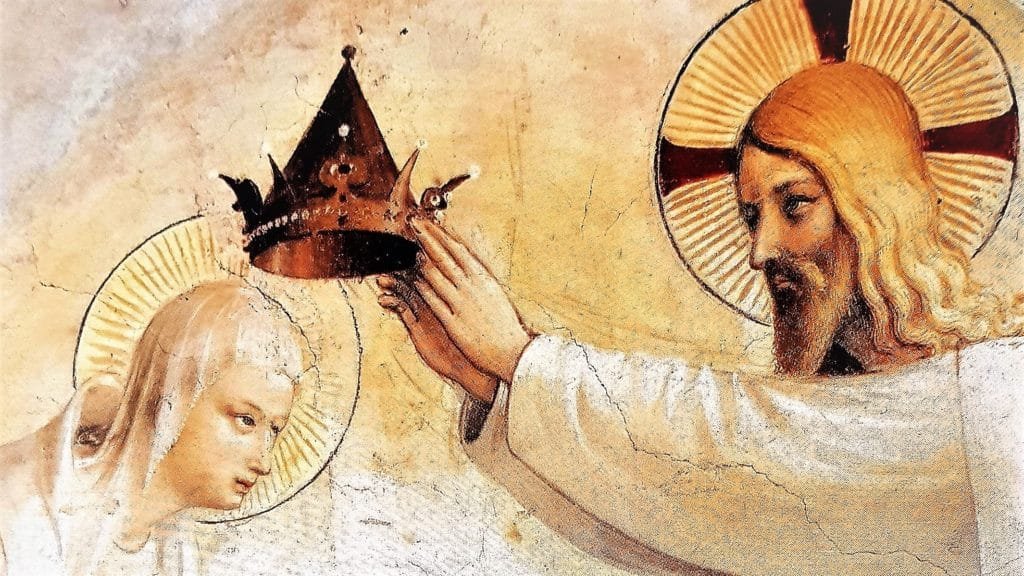
God’s blessing must be our objective, and the way to win it our study. Search the records of ancient times. Why was our father Abraham blessed? Was it not because his upright and straightforward conduct was inspired by faith? As for Isaac’s faith, it was so strong that, assured of the outcome, he willingly allowed himself to be offered in sacrifice. Jacob had the humility to leave his native land on account of his brother, and go and serve Laban. He was given the twelve tribes of Israel.
Honest reflection upon each of these examples will make us realise the magnitude of God’s gifts. All the priests and levites who served the altar of God were descended from Jacob. The manhood of the Lord Jesus derived from him. Through the tribe of Judah, kings, princes and rulers sprang from him. Nor are his other tribes without their honour, for God promised Abraham: “Your descendants shall be as the stars of heaven.” It is obvious, therefore, that none of these owed their honour and exaltation to themselves, or to their own labours, or to their deeds of virtue. No; they owed everything to God’s will. So likewise with us, who by his will are called in Christ Jesus. We are not justified by our wisdom, intelligence, piety, or by any action of ours, however holy, but by faith, the one means by which God has justified men from the beginning. To him be glory for ever and ever. Amen.
What must we do then, brothers? Give up good works? Stop practising Christian love? God forbid! We must be ready and eager for every opportunity to do good, and put our whole heart into it. Even the Creator and Lord of the universe rejoices in his works. By his supreme power he set the heavens in their place; by his infinite wisdom he gave them their order. He separated the land from the waters surrounding it and made his own will its firm foundation. By his command he brought to life the beasts that roam the earth. He created the sea and all its living creatures, and then by his power set bounds to it. Finally, with his own holy and undefiled hands, he formed man, the highest and most intelligent of his creatures, the copy of his own image. “Let us make man,” God said, “in our image and likeness. And God made man, male and female he made them.” Then, when he had finished making all his creatures, God gave them his approval and blessing: “Increase and multiply,” he charged them.
We must recognise, therefore, that all upright men have been graced by good works, and that even the Lord himself took delight in the glory his works gave him. This should inspire us with a resolute determination to do his will and make us put our whole strength into the work of living a Christian life.
Stay updated: subscribe by email for free TO OUR NEW WEBSITE www.catholicsstrivingforholiness.org (PUT YOUR EMAIL IN THE SUBSCRIBE WIDGET).
We are also in www.fb.com/Catholicsstrivingforholiness. Kindly help more people in their Christian life by liking our page and inviting your family, friends and relatives to do so as well. Thanks in advance and God bless you and your loved ones! Fr. Rolly Arjonillo

